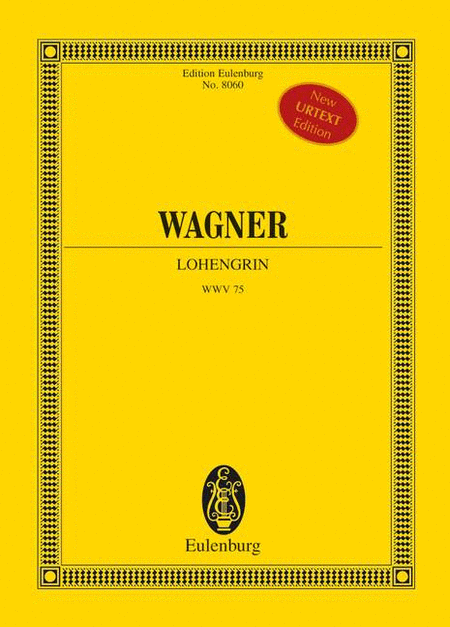2 Sopranos, Tenor, Baritone, 2 Basses, Mixed Chorus and Orchestra - Digital Download SKU: S9.Q17850 Composed by Richard Wagner. This edition: study score. Choral music - ernst eulenburg - opera. Eulenburg Miniature Scores. Downloadable, Study score. Ernst Eulenburg & Co. GmbH - Digital #Q17850. Published by Ernst Eulenburg & Co. GmbH - Digital (S9.Q17850). German.Lohengrin is regarded as Wagner's most fairy-story-like opera, its plot interweaving motives from the world of legends and medieval history. The opera was premiered at the Weimar Court Theatre on 28 August 1850 under the direction of Franz Liszt in the composer's absence. This new Eulenburg study score edition follows the Wagner Complete Edition which is based on the autograph score, representing the first critical edition of Lohengrin. Previous editions were based on the 1914 edition of the score which differed from the autograph in many details and was published by Michael Balling as part of the first complete edition which has remained unfinished. The original musical text is now available in a handy format for the first time - and is perfectly suited for study purposes. With German/English preface and Critical Report!
